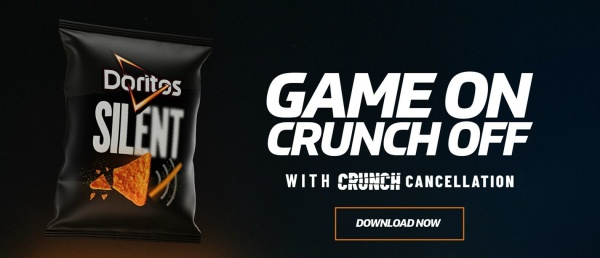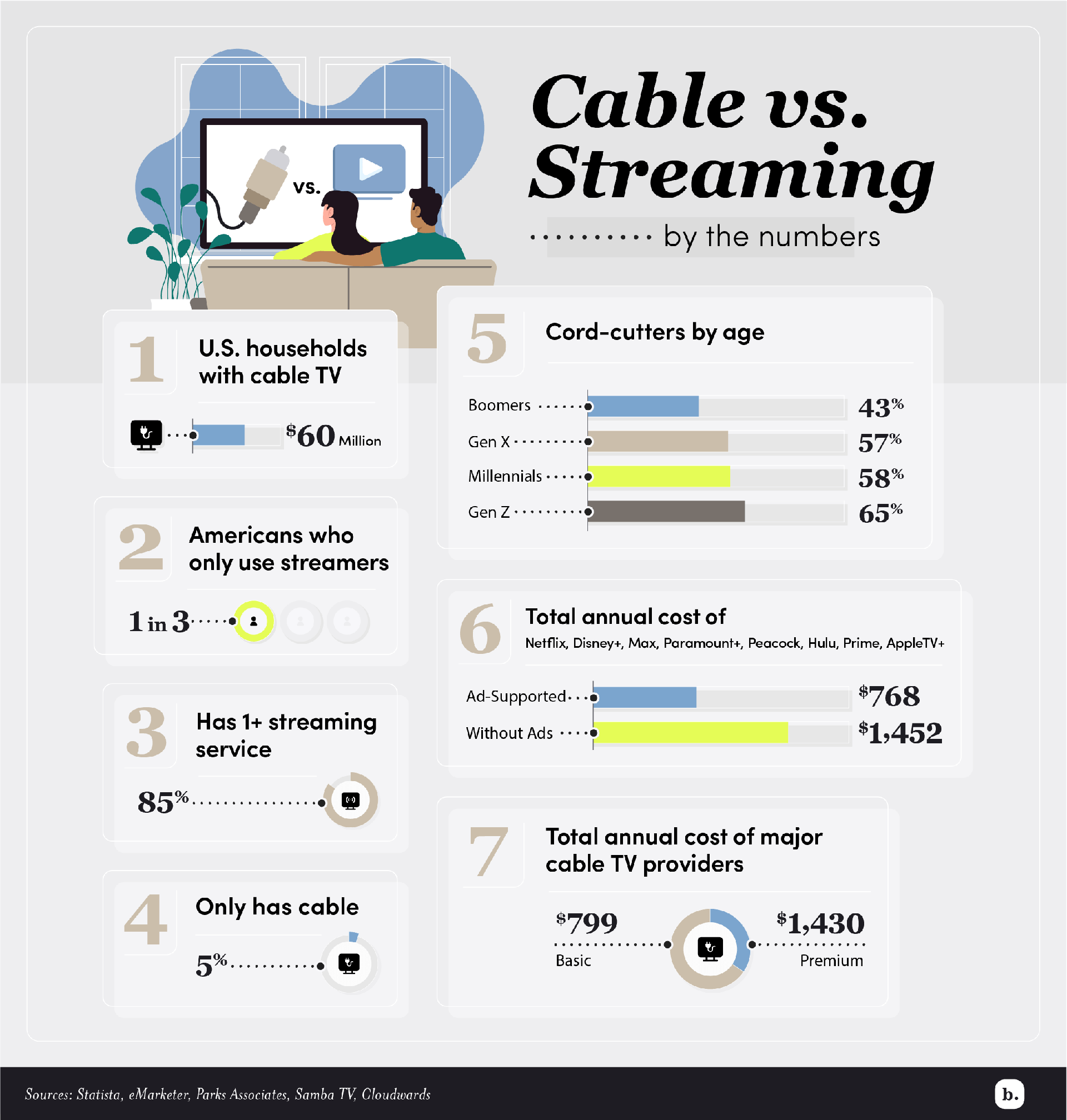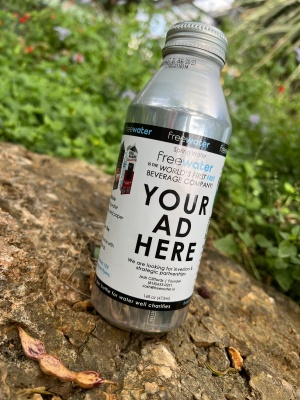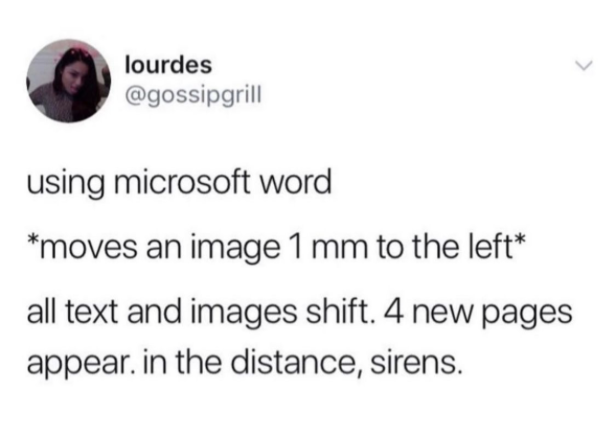Consumers are sick of the tipping culture, but is legislating it away the solution?
Some New York City lawmakers are hoping to ditch the tip credit system by 2026, making tipped service workers eligible for the $16 standard minimum wage. This reformist recipe is not a hit with local restaurant and bar owners, 95% of whom oppose the bill, according to the NYC Hospitality Alliance.
Tossing out the tip system like last week’s leftovers, warns the trade group, would raise annual labor costs by $12,000 per employee. Further, 3 in 4 business owners say they would raise menu prices; 2 in 3 would reduce staff; and half would close their establishments. Perhaps they’re bluffing, perhaps not … but for now, the battle of wills between customers and iPad screens rages on.
|
|
|
Crowdfunding: It’s a financial superpower
Doritos: Chip purveyors used AI to eliminate crunch
Infographic: Cable vs. streaming by the numbers
FreeWater: It’s free … it’s water … it’s a business
|
|
|
How Entrepreneurs Can Make Crowdfunding Their Financial Superpower
|
(Source: Rocketship Entertainment)
|
For every Bruce Wayne who inherits his company, there are a million Peter Parkers: bright young solopreneurs with a cool side hustle but precious little cash. So unless you’re a billionaire industrialist like Iron Man — or a long-established, all-American icon like Superman (e.g., Kellogg’s, Ford, Kraft Foods, and Levi’s) — you’re going to need startup capital.
Fortunately, crowdfunding has emerged as a popular alternative to traditional business loans for software, household products, and even comic books. For insights on how to utilize it, b. spoke with Tom Akel, CEO and publisher of Rocketship Entertainment, which prints and distributes paper editions of comics that have already proven their popularity online.
Akel, who previously oversaw MTV Comics and worked with Stan Lee and The Walking Dead creator Robert Kirkman, launched Rocketship because he observed a gap in the market. “Publishers weren’t really taking webtoons and webcomics super seriously” despite significant followings, he says. “For many webcomic creators, they have a real one-to-one connection with their audience.”
Crowdfunding not only test-markets viability, but it also alleviates the burden of publishing costs, a make-or-break factor for developing artists.”You essentially eliminate all risk by doing this model,” Akel says.
Similarly, a product crowdfunded on platforms such as Kickstarter and Indiegogo doesn’t need to be manufactured until consumer interest has been confirmed through real-time data. A brilliant idea can receive viral press attention without a marketing team. Plus, founders retain creative control over their vision, which isn’t always the case when VCs come aboard. No wonder crowdfunding is on an upward trend, with anticipated compound annual growth of 14.7% over the next four years.
Akel explains that crowdfunding can help entrepreneurs with out-of-the-box ideas gain traction in almost any industry. He cited leading toy companies like Hasbro and Lego that have found success with their in-house crowdfunding projects.
“More and more big brands will start taking crowdfunding very seriously,” he predicts. “Expect to see more mainstream projects hitting there, more than ever before, in the next three to five years.”
|
|
|
Make generative AI work for your next email marketing campaign
|
Artificial intelligence is driving headlines, but how can it drive your business forward? These new and innovative tools may help you grow your business, but only if you can make heads or tails of them.
Thanks to Mailchimp, you can leverage generative AI for your next email campaign without the steep learning curve. Take advantage of more than 20 AI and data science tools housed directly in Mailchimp’s famously user-friendly interface to personalize content for your audience, your industry, and your brand.
See why marketers say Mailchimp’s AI tools help them grow revenue by 141% on average. With flexible, competitive pricing plans and the ability to try before you buy, Mailchimp is a great choice for any small business ready to level up its email marketing with the latest AI technology.
|
|
|
Doritos’ AI ‘Crunch-Canceling Tech’ for Online Audio
|
Ever since the advent of telecommunications, loud chewing has interrupted countless interactions. Doritos, which you might understandably consider purveyors of loud snacks, finally solved that problem.
Geared toward gamers, the app Doritos Silent — which “involved the technical analysis of more than 5,000 different crunch sounds,” according to the company — managed to eliminate obnoxious eating noises from digital audio in real time. Reviewers were impressed, and the marketing stunt earned Doritos attention from The Washington Post, Food Network, Delish, Mashable, IGN, and many other news outlets.
Unfortunately, the app is no longer available to download. How could Doritos give this wondrous technology to humanity and then take it away? Not cool, Doritos, even if your ranch always will be.
|
Cable vs. Streaming by the Numbers
|
|
|
FreeWater Gives Away (Sponsored) H20 for Communities in Need
|
|
|
FreeWater calls itself “the world’s first free beverage company.” The for-profit, Austin-based startup, which has tens of millions of followers across its social media platforms, just … like … gives away natural spring water. So, how does it stay in business? By selling advertisements on every (BPA-free, eco-friendly) bottle.
It’s like a handheld billboard that keeps you hydrated. Even better, FreeWater donates 10 cents per bottle to relief efforts for communities facing water scarcity.
“Our startup puts a spin on capitalism by freely distributing negatively priced goods that are profitable,” said FreeWater CEO Josh Cliffords in a 2022 press release. “We help brands reach their desired audience, provide consumers with high-quality goods for free, and donate to charity to solve global issues without using a penny of taxpayers’ money.”
To sponsor or distribute FreeWater bottles in the 48 contiguous states, check out their website.
|
|
|
Written by Antonio Ferme, Ali Saleh, and Dan Ketchum.
|
|
|
|




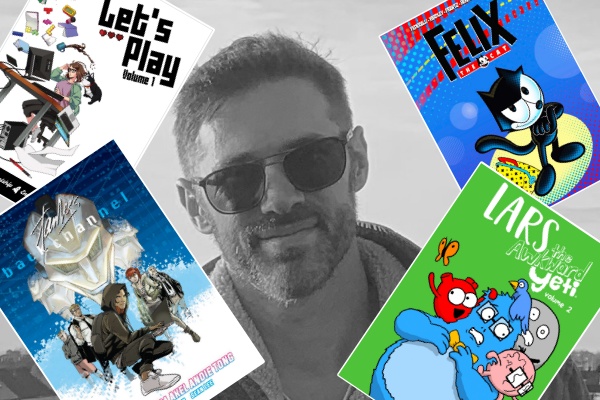
.png)

